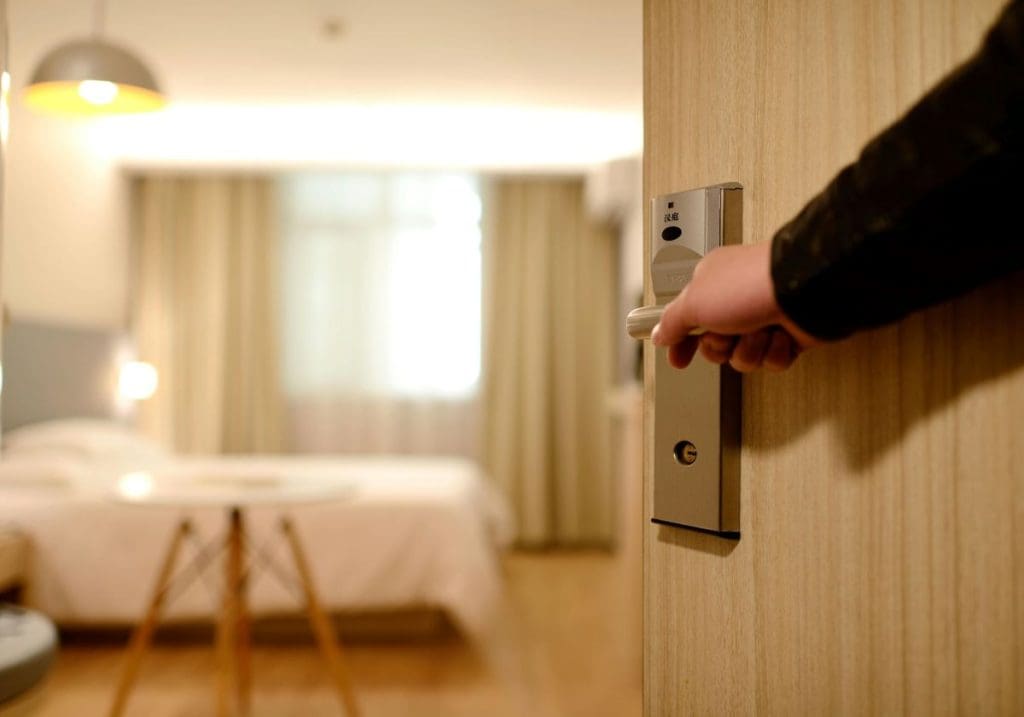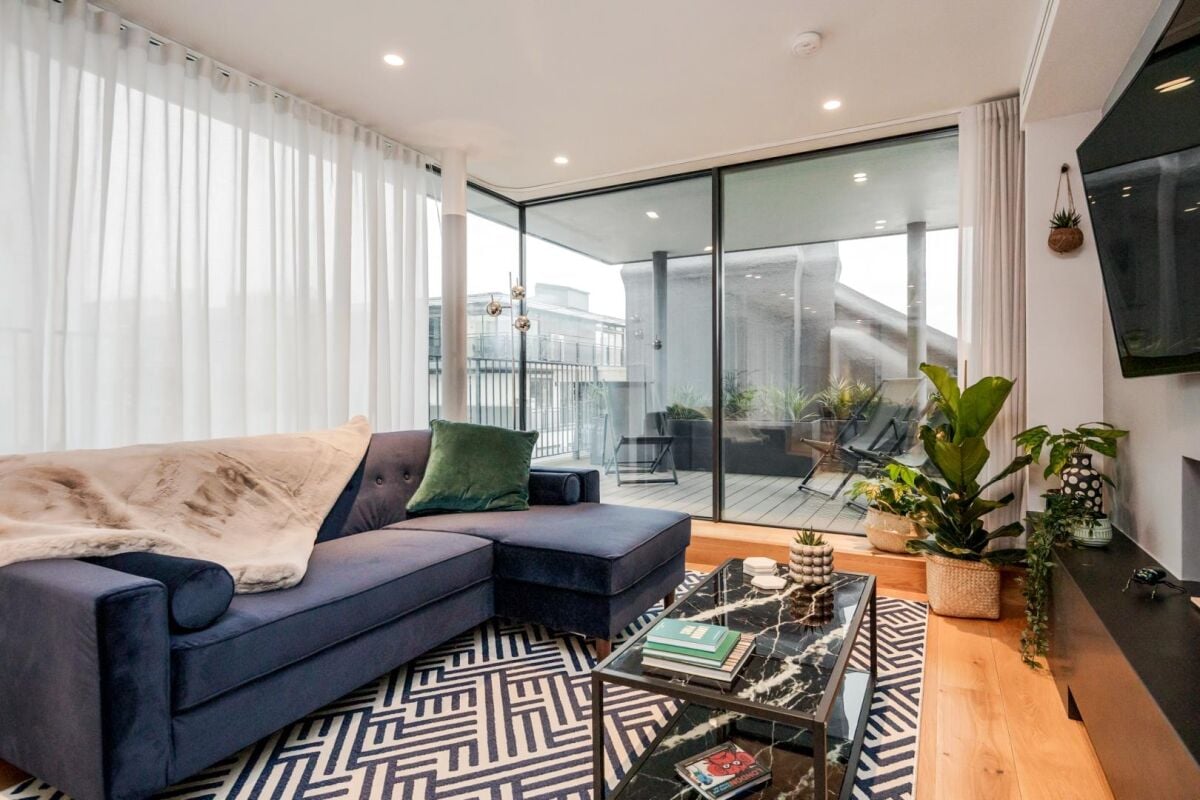How long you can stay at a hotel depends on the hotel’s guidelines as well as any regulations the city you’re residing in may have. If there are no rules against it, and the hotel in question is willing to have a long-term guest, then technically you can stay as long as you like.
However, there are a few reasons why staying long-term in a hotel isn’t the best idea. Hint: there are far better options such as serviced accommodation!
Space, you’ll miss it
It’s no secret that hotels function best for short stays – ideally a week or so max – and the main reason for this is space (or lack thereof). Most hotels consist of a bedroom and a bathroom, though some might have a dining table or desk, facilities beyond this are quite limited. This makes sense, as the main purpose of a hotel room is to provide you with somewhere comfortable to sleep, and to act as a base to return to after a day out.
Extended stay accommodation should be different. When you’re staying somewhere long term, you’re far more likely to spend prolonged periods of time at your accommodation, and a great place to sleep isn’t necessarily an ideal place to live. On extended trips, you’ll be living, dining, and potentially working in your accommodation, so it needs to have suitable space and capacity for long-term occupancy.
A much better choice is to opt for serviced accommodation. This is an apartment or a house that is booked and managed in the same manner as a hotel, meaning they’re fully furnished with bills and Wi-Fi included, there are no deposits to pay, and you can easily amend your check-in/out days as needed.
Situ has a vast network of serviced apartments and houses across the globe – they’re all perfectly suited to extended stays and ready to book when you are. Take a look.

Catering: takeaways get old after a while!
One of the biggest expenses for hotel living is catering. Without a kitchen, you will need to either order room service or eat out for every meal, and you’ll find the costs quickly add up. Plus, you’ll likely tire of eating from the same menu every night for weeks on end.
With serviced accommodation, you will have a fully-equipped kitchen. This means a fridge to store food, cupboards stocked with pots, pans, and cutlery, as well as an oven to cook whatever you fancy. Being able to do a weekly shop and not needing to worry where you’ll be getting your breakfast, lunch, and dinner (and maybe a few snacks in between) will save you a lot of time and energy.
Plus, wouldn’t you rather have a full-sized carton of milk than try to peel open those little pots of long-life milk every time you want a cup of tea?
Costs… They’re costly
Hotel rooms are expensive, particularly in key locations, and that price will be prone to fluctuations if it’s holiday season. With serviced accommodation, your stay becomes better value for money over time due to a VAT reduction for extended stays. So, you’ll likely see better value from serviced accommodation than a hotel.
Hotels also come with extra charges you may not have considered. For instance, while free Wi-Fi comes as standard when you book with Situ, Wi-Fi is not always included in hotel bookings, meaning you might have to pay extra.
Laundry is another consideration, while some hotels provide laundry services, these can be expensive, and you may end up having to walk to the local launderette. With serviced accommodation, the majority of properties have in-apartment washing machines that won’t require any extra charges.
And of course, there’s also the price of food. A weekly shop that you can store in the fridge is far more affordable than a week’s worth of room service. Even if you’re not the one footing the bill, the freedom of choosing and cooking your own meals can be a significant benefit to your wellbeing during your stay.

Extra bedrooms for family visits
One of the best things about serviced accommodation is the flexibility it offers. If you’re staying somewhere long-term, chances are you’ll have friends or family visiting at some point. Hotel rooms are typically designed for one or two people, and trying to accommodate guests can be tricky. You may end up needing to book additional rooms, which comes with extra costs and hassle.
In contrast, many serviced apartments and houses offer multiple bedrooms. This makes it easy to host guests without having to rearrange your living situation or fork out for separate hotel rooms. Whether it’s a friend popping in for a few nights or a relative staying for an extended period, you’ll have the space to welcome them.
This is particularly welcome if you’re considering a ‘bleisure’ stay, where people add additional leisure days on the end of a business trip.
Wellbeing – A home away from home
Another key factor to consider is your overall wellbeing. Living in a single hotel room for an extended period can feel quite isolating and cramped. You might start to miss those homely comforts, like being able to curl up on the sofa with a book or spread out across the dining table for a meal.
Serviced accommodation provides a more home-like environment, with multiple rooms, comfortable furniture, and space to relax. It’s all about balance – having a place that feels like a home, even if it’s temporary, can do wonders for your mental health. Plus, if you’re working remotely, having a proper workspace instead of the small desk found in many hotel rooms can make a world of difference.

Conclusion
So, can you live in a hotel room? Technically, yes, but it’s not the most practical or comfortable option for a long-term stay.
If you’re planning to settle in for an extended period, you’ll want to prioritise space, flexibility, and wellbeing. While hotel rooms are designed to provide a cosy place to sleep, they can fall short when it comes to living. Serviced accommodation, on the other hand, gives you the room to breathe, cook your meals, do your laundry, and even entertain guests.
Ultimately, it’s about making sure your temporary home meets your needs for however long you’re there. You may be able to stay in a hotel for as long as you like, but serviced accommodation ensures that you’ll actually want to be there!
Get in touch today to discuss your accommodation needs and discover how Situ can make your stay Booking Brilliant! You can also read our accommodation explained blog to hear more about the housing options we provide.


